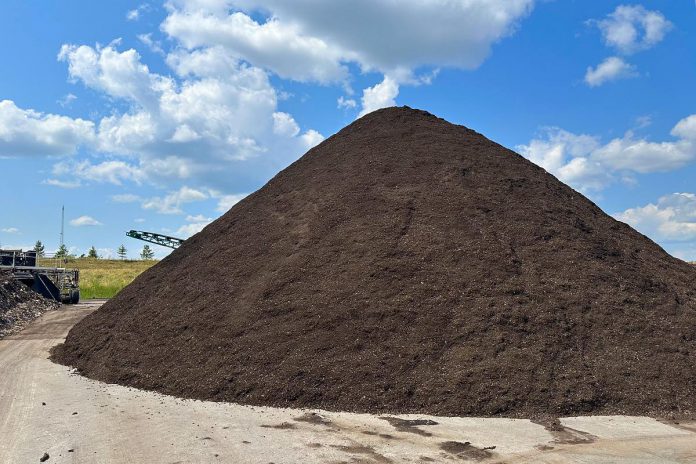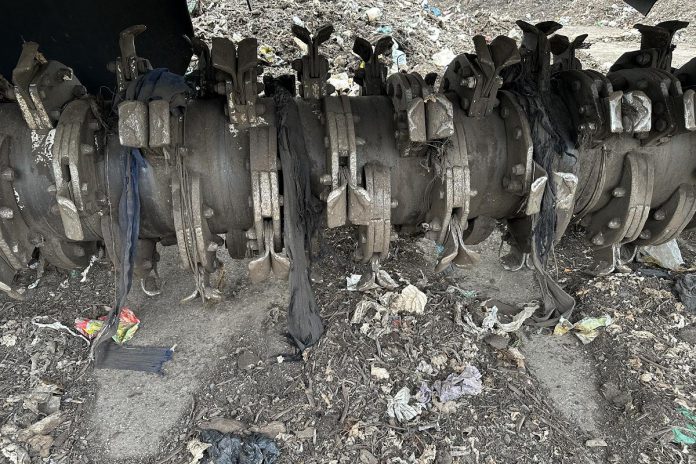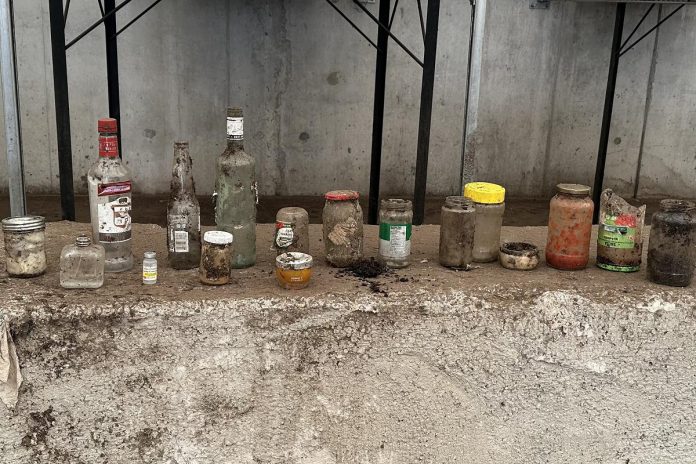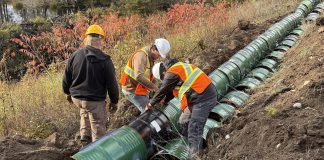
What goes around truly comes around, now that Peterborough’s municipal organics program offers finished compost produced from the community’s curbside organic program back to the community.
In the fall of 2023, the community accepted the invitation to divert household organics from the city and county-owned landfill with open arms.
Through the second year of the program, the organics diversion rate has continued to grow. This year, from January to May, almost 600 tons of organic material was processed monthly at the Peterborough Organics Facility. This represents a three per cent increase over the same five-month period last year.
Last summer, residents shared their enthusiasm for the program at the city’s waste diversion booth at the Peterborough Folk Festival, boasting, “We only have ONE bag of garbage every TWO weeks!” and “I hardly throw anything out anymore.”
This positive feedback and the sheer volume of organic material being collected reflects the community’s commitment to waste diversion. About 95 per cent of the organic material processed at the Peterborough Organics Facility is collected from the city’s curbside program.
Amid the successes of this program, one of the challenges that persists is contamination — specifically plastic contamination.

While plastic has become almost unavoidable in food packaging, even glass and other obviously non-compostable materials turn up in the green bin. These things negatively affect the processing of organics and the final quality of compost.
Materials like textiles and reusable grocery bags get wrapped around screening and shredding machines, causing processing delays and equipment damage. All of this can be avoided with a bit of careful sorting on waste day.
That mouldy jar of salsa at the back of the fridge? Dump the contents into the green bin and recycle the jar (after a quick rinse, of course). Did those grapes — now raisins — spend too long in the crisper drawer? Make sure they come out of the bag before going into organics. Has that cucumber gone soggy in the wrapper? Peel the plastic off into the garbage before putting the cucumber in with organics.
Plastic is the most common contaminant found with organics because it is so widely used in food packaging, and it’s problematic in the composting process because it breaks down into tiny pieces that are very difficult to separate.
Not only that, but many products also brand themselves as “green” or “biodegradable” or “100% natural,” making it hard for consumers to know what really can and can’t go in the green bin. BPI-certified compost bags are the only approved compostable plastic product that the Peterborough Organics Facility can accept, and all other plastic should be disposed of in the garbage or blue box.
Residents of Peterborough have done a great job with a new waste diversion program that required changes to a lot of practices, all at once. Growing pains like this are expected with new programs, and to help address the issue of contamination, city staff will be launching a media campaign followed by a curbside engagement campaign this summer.

The goal is to identify contamination at the curb before it’s all mixed in and to educate residents on what can and can’t go in the green bin. Hopefully, understanding that the sorting decisions made at home have a huge impact on the quality of the finished compost will lead residents to be extra careful with what goes in the green bin.
Another great tool is the City of Peterborough Waste app that residents can download for free at www.peterborough.ca/garbage to search for items and where they should be disposed.
All finished compost produced at the Peterborough Organics Facility meets the AA quality standard under the Ontario Compost Quality Standards, which is the highest quality rating. To meet the AA standard, there must be no sharps (broken glass, metal shards) greater than 3mm in size. It is with quality and safety in mind that all this work goes into collecting, screening, shredding, and composting household organics.
Finished compost produced from the Peterborough household organics program is available for purchase by weight (4.5 cents per kilogram) at the Bensfort Road site or at GreenUP Ecology Park on Ashburnham Drive. For more information, visit www.peterborough.ca/landfill.


























